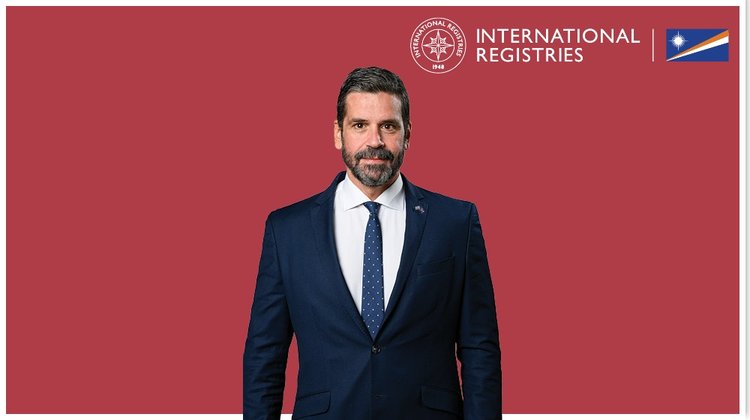Xenakoudis: Technology will play a significant role in the sustainable future of the shipping industry
07:12 - 25 November 2023

Theo Xenakoudis, Chief Commercial Officer & Managing Director, IRI Piraeus recently talked about the advantages enjoyed by the owners and operators of RMI flagged vessels.
He also discusses how recent events have impacted the sector while also suggesting the technology and digitisation are key to the sustainable future of the shipping industry.
What are some of the enduring benefits provided by registering in the Republic of the Marshall Islands (RMI)?
International Registries, Inc. and its affiliates (IRI) provide administrative and technical support to the RMI Maritime and Corporate Registries. For owners and operators of RMI flagged vessels, the RMI Registry provides significant benefits, primarily due to IRI’s highly qualified team members who focus on quality, service, and continual improvement. Our team provides registration and ongoing technical and operational support from our network of 28 worldwide offices. With decentralised operations, we provide clients with 24-hour worldwide service, meaning that no client is waiting for business hours in another part of the world for a decision or an answer. Technical support is included at no additional cost and our close working relationships with the major Classification Societies help to simplify matters for owners, operators, and managers. Perhaps the most significant benefit is the RMI’s outstanding port State control (PSC) record, which includes an unprecedented 19 consecutive years of QUALSHIP 21 status with the United States Coast Guard, as well as white list status with both the Paris and Tokyo Memoranda of Understanding. In addition, the RMI’s active delegation to the International Maritime Organization (IMO) plays a role in shaping future regulations, allowing RMI Registry personnel to proactively manage the implementation of new requirements and provide advice to owners, operators, and managers.
How will the increased use of technology and efforts aimed at increasing sustainability impact the international maritime sector?
Technology and digitalisation will play a significant role in the sustainable future of the industry. Technical experts from our teams are involved in research and the development and exploration of advanced technologies and solutions aimed at enhancing the sustainability of the industry for the future. These joint development projects aim to create solutions for decarbonisation and to lessen shipping’s impact on the environment.
How have recent developments – the gradual emergence from the shadow of the pandemic and efforts to manage the consequences of events in Ukraine – impacted the maritime industry? How can any negative impact be overcome?
Global events impact the movement of goods and equipment, as well as shipping’s most valuable asset: its seafarers. Any global event has the potential to cause disruption but the fact remains that the maritime industry is essential to the world’s economy and we are used to adapting and evolving. Whether it is an event like the pandemic or the situation in Ukraine, the RMI Registry remains focused on providing the services and support our clients need and going above and beyond, when necessary, to deliver solutions to their challenges. Adaptability is at the heart of the Registry’s activities and we are constantly evaluating what our clients need from us today and preparing for the future.
You have been at IRI for over 20 years. What are some of the most significant changes that you have witnessed in the way business is carried out and what has stayed the same?
This industry is constantly evolving, and we have seen significant changes in the last 20 years, especially in the areas of digitalisation, sustainability, and decarbonisation. New energy sources, innovative technology and new applications of old technology are changing the way vessels operate and interact with the environment around them. As an industry we are also more focused on crew welfare and safety than we were before the Maritime Labour Convention, 2006 entered into force. This was the first international standard for crew welfare, contracts, and living conditions on board the vessel. I expect the next decade to be a time of rapid change, during which we will continue to pivot and adapt to meet the challenges. While the industry has evolved in many ways, it was and will always be built upon relationships.
This interview first appeared in the November edition of GOLD magazine. Click here to view it.

